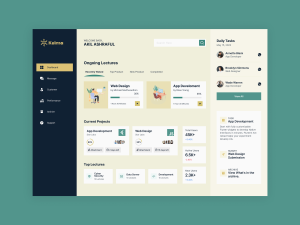Introduction
Are you aspiring to be a successful UX designer but hesitant because you lack coding skills? The age-old myth that coding is essential for UX design success is about to be debunked. In this article, we will deep dives into the question, “Do You Need to Code to Be a UX Designer,” exploring whether coding is absolutely necessary or just an extra advantage for UX designers. Many individuals have been discouraged from pursuing a career in UX design due to the misconception that coding is a prerequisite. However, the truth is that while coding can certainly be beneficial, it’s not the only skill a UX designer needs. That’s why we are going to explore real-life examples and insights from experienced professionals in the industry who have excelled in UX design without extensive coding knowledge.
The role of coding in UX design
The role of coding in UX design has been a topic of debate for years. Some argue that coding is an indispensable skill for UX designers, while others believe that it is not a mandatory requirement. At its core, UX design is about creating meaningful and seamless experiences for users, and while coding can certainly aid in this process, it is not the sole determinant of success in the field. Understanding the fundamentals of coding can undoubtedly provide valuable insights into the technical aspects of design, but it is not the only path to proficiency in UX design.
Common misconceptions about coding and UX design
One of the common misconceptions about coding and UX design is that the two are inseparable. Many aspiring UX designers feel intimidated by the prospect of learning to code, assuming that it is a non-negotiable skill for their career advancement. However, it’s essential to dispel this myth and recognize that while coding can be advantageous, it is not a prerequisite for excelling in UX design. By understanding the misconceptions surrounding coding and UX design, aspiring designers can gain confidence in pursuing their passion without feeling constrained by technical barriers.
Skills and knowledge required for UX design
When considering the skills and knowledge required for UX design, it’s crucial to emphasize the multifaceted nature of the discipline. While a strong understanding of user psychology, interaction design, and usability principles is paramount, coding proficiency is not the sole marker of success. Effective communication, problem-solving abilities, creativity, and a deep empathy for users are equally essential components of a successful UX designer’s skill set. By recognizing the diverse skill set required for UX design, aspiring designers can embrace their strengths and focus on honing the core competencies that drive impactful design solutions.
The benefits: Why do you need to code to be a UX
While coding may not be a mandatory skill for UX designers, there are undeniable benefits to acquiring coding knowledge. Understanding the technical intricacies of front-end development and collaborating effectively with developers can significantly enhance a designer’s ability to translate their vision into functional and visually appealing interfaces. Additionally, the ability to prototype and test design concepts independently can empower UX designers to iterate more efficiently and advocate for their design decisions with greater conviction. By recognizing the benefits of learning to code, UX designers can make informed decisions about investing in technical skill development.
Tools and resources for UX designers who want to learn to code
For UX designers who are interested in learning to code, a plethora of tools and resources are available to facilitate their journey. Online platforms such as Codecademy, Udemy, and Coursera offer comprehensive courses in programming languages, web development, and front-end technologies, catering to beginners and advanced learners alike. Additionally, design-focused tools like Figma and Adobe XD provide seamless integrations with code-based workflows, allowing designers to visualize their designs in the context of development. By leveraging these tools and resources, UX designers can embark on a structured path to acquiring coding skills while honing their design expertise.
READ MORE: UX Designers Who Can Code: Bridging Design and Development
How coding skills can enhance a UX designer’s portfolio
Integrating coding skills into a UX designer’s portfolio can be a compelling differentiator in a competitive job market. By showcasing prototypes, interactive designs, and coded projects, designers can demonstrate their ability to bridge the gap between design and development, offering a holistic perspective on the user experience journey. Furthermore, the ability to communicate design decisions through functional prototypes can elevate a designer’s portfolio and resonate with employers seeking versatile and technically adept UX professionals. By leveraging coding skills to enhance their portfolio, designers can position themselves as valuable assets in the UX design landscape.
Real-world examples of successful UX designers who can code
Numerous successful UX designers have thrived in their careers with varying degrees of coding knowledge. Steve Jobs, the legendary co-founder of Apple, blended his design sensibilities with a deep understanding of code. Also it was a driving force behind the groundbreaking products that transformed the way we interact with technology. From industry leaders to emerging talents, these designers have leveraged their coding skills to augment their design capabilities, communicate effectively with development teams, and push the boundaries of user-centric innovation. By examining real-world examples of designers who have integrated coding into their skill set, aspiring UX professionals can glean insights into the diverse pathways to success in the field. These examples serve as a testament to the value of coding skills while emphasizing that success in UX design is not contingent on coding proficiency alone.
Successful UX designers without coding knowledge
Contrary to popular belief, there are numerous successful UX designers who have achieved remarkable feats without extensive coding knowledge. These designers have excelled in their careers by leveraging their strengths in user research, information architecture, wireframing, and prototyping, demonstrating that coding is not a prerequisite for impactful UX design. By proving wrong the idea that the coding essential for UX design success, these professionals inspire aspiring designers to embrace their unique skill sets and pursue their passion for creating exceptional user experiences. Their stories serve as a testament to the diverse pathways to success in UX design, reaffirming that coding proficiency is not a definitive criterion for achieving excellence in the field.
Learning opportunities for UX designers to acquire coding skills
For UX designers who are eager to expand their skill set and acquire coding knowledge, a myriad of learning opportunities exist to facilitate their growth. Engaging in workshops, attending coding boot camps, and participating in online communities can provide invaluable exposure to programming languages, development frameworks, and best practices in front-end development. Additionally, seeking mentorship from experienced developers and collaborating on cross-functional projects can offer practical insights into the intersection of design and code. By embracing these learning opportunities, UX designers can embark on a transformative journey to augment their skill set and broaden their professional horizons.
Conclusion
In conclusion, the myth that coding is an absolute necessity for success in UX design is ripe for debunking. While coding can undeniably augment a designer’s skill set and open new avenues for creative exploration, it is not a definitive requirement for excelling in UX design. By recognizing the multifaceted nature of UX design, embracing diverse skill sets, and leveraging the benefits of learning to code, aspiring designers can carve their unique paths to success in the field. Whether with or without extensive coding knowledge, the essence of UX design lies in empathy, creativity, and a relentless pursuit of crafting exceptional user experiences. It’s time to break free from the confinements of this myth and embrace the diverse pathways to becoming a successful UX designer.




